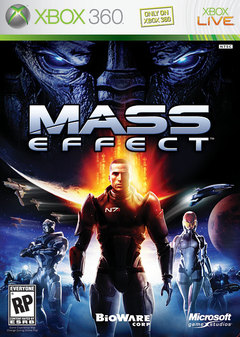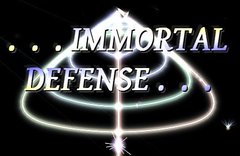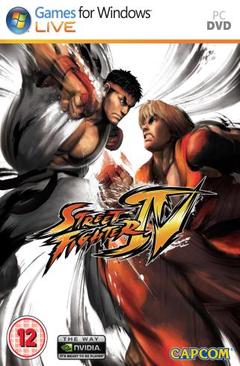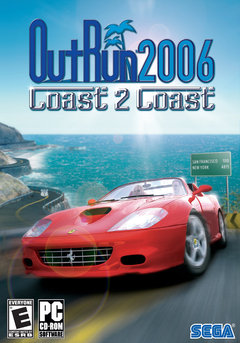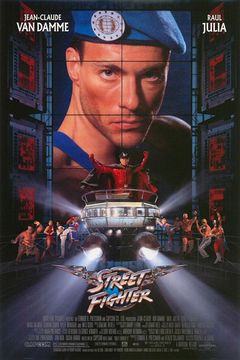Steve's reviews and writings
Time Gentlemen, Please!: An Audio-Visual Experience
 This spoiler-filled
Audio Visual Experience of Time Gentlemen, Please! contains both
potential puzzle/adventuring hints as well as possibly direct
spoilers, up to and including the ending of the game. If you are
interested in playing the game and have yet to do so (check the less
spoilertastic article on the game),
then you may wish to avoid this article. Otherwise, enjoy the
experience of this fun little indie adventure game. Also as a
sidenote, due to a bug with the game engine, no dialogue was captured
on the images until the last few images, when some setting changes
fixed the issue (as a result, somewhat reducing spoilering but also
reducing fun). Warning: potential spoilers below.
This spoiler-filled
Audio Visual Experience of Time Gentlemen, Please! contains both
potential puzzle/adventuring hints as well as possibly direct
spoilers, up to and including the ending of the game. If you are
interested in playing the game and have yet to do so (check the less
spoilertastic article on the game),
then you may wish to avoid this article. Otherwise, enjoy the
experience of this fun little indie adventure game. Also as a
sidenote, due to a bug with the game engine, no dialogue was captured
on the images until the last few images, when some setting changes
fixed the issue (as a result, somewhat reducing spoilering but also
reducing fun). Warning: potential spoilers below.Ben There, Dan That! and Time Gentlemen, Please!
 So as I'm moving through my Steam
backlog, my next games are the adventure duo Ben There, Dan That! and
its sequel Time Gentlemen, Please! Both are old-school 2d adventure
games, harking back to classics such as Maniac Mansion, Loom, Monkey
Island and Sam & Max (admittedly, none of which I have played
aside from the free Sam & Max episode on Steam).
So as I'm moving through my Steam
backlog, my next games are the adventure duo Ben There, Dan That! and
its sequel Time Gentlemen, Please! Both are old-school 2d adventure
games, harking back to classics such as Maniac Mansion, Loom, Monkey
Island and Sam & Max (admittedly, none of which I have played
aside from the free Sam & Max episode on Steam).In case you aren't familiar with the PC adventure game genre, they're dialogue-heavy puzzle/detective games of a sort. You walk around, talk to people, pick things up, interact with objects and generally figure out ways to progress to your next or overall objective. It's generally very simple to play, not requiring twitch skills or muscle memory like most modern games and can be taken at whatever pace you wish. The humor of the games are by far their biggest draw, with large amounts of clever, lighthearted, endearing dialogue. Of course, then the dialogue is the main draw of the genre and allows it to stand out over say, an electronic version of Clue. Other significant factors towards the final product include ambience, intelligent pacing and a basic yet effective control scheme. The genre as a whole has a fairly rabid dedicated fanbase. This is in contrast to the majority of the gaming world, who doesn't even know that the genre exists.
Armada
 Time for a first hour review/chance to
test out my capture card abilities. Today I'll be playing Armada, a
Dreamcast game semi-randomly selected from those in my possession
that have not been previously played through. Well, I think I
actually played a few minutes of it when I got it, but nothing I
particularly remember and certainly nothing particularly substantial.
All I really recall is that it seemed to be received fairly
positively and was supposedly a fine multiplayer game. So anyway,
let's try it out. If you want to follow along with the video
playthrough, you can find it at my YouTube playlist.
Time for a first hour review/chance to
test out my capture card abilities. Today I'll be playing Armada, a
Dreamcast game semi-randomly selected from those in my possession
that have not been previously played through. Well, I think I
actually played a few minutes of it when I got it, but nothing I
particularly remember and certainly nothing particularly substantial.
All I really recall is that it seemed to be received fairly
positively and was supposedly a fine multiplayer game. So anyway,
let's try it out. If you want to follow along with the video
playthrough, you can find it at my YouTube playlist.Mirror's Edge
 Here we have Mirror's Edge, a first-person platformer of sorts, released in late 2008/early 2009 by DICE/EA. I've been interested in the game for a while, starting from its strong marketing campaign, so I jumped on the chance to play it recently.
Here we have Mirror's Edge, a first-person platformer of sorts, released in late 2008/early 2009 by DICE/EA. I've been interested in the game for a while, starting from its strong marketing campaign, so I jumped on the chance to play it recently.It can be briefly summarized that in Mirror's Edge, you are a runner, tasked to transfer information between groups looking to avoid the surveillance of an overbearing government and its allies. As escaping capture is of utmost importance, runners do most of their travel on free outdoor environments, especially rooftops. Thus the gameplay is largely parkour-based, emphasizing proper use of momentum, speed and techniques to accomplish goals. At its best, this leads to a smooth, sublime experience, reminiscent of games like Jet Set Radio, Shadow of the Colossus, NiGHTS, and the original Prince of Persia. Mirror's Edge takes the player further into that experience, locking you to a first-person view with constant reminders of your physical struggles with and against the forces of gravity and objects in your world.
Mass Effect: An Audio-Visual Experience
Welcome to Mass Effect: An Audio-Visual Experience.
Often in life, people notice a gorgeous environment or model or visual effect or even just an angle in relation to the scenery. Thanks to the magic of image capturing, these moments can be preserved for future savoring and to remember the moment. The same experiences can happen while playing games. Due to the magic of screen/video capture software (Fraps in particular), these moments and experiences can be captured for display for others or self in the future.
While playing Mass Effect, I noticed a relatively high amount of impressive scenery and images being captured, from which this idea was formed. As far as the specific idea for an audio-visual experience, I'll start by saying that people do things for any large number of reasons. To narrow down, common reasons for playing games may include the desire to distract oneself, desire for competition, desire for mental stimulation, and/or the desire to get lost in a new subjective experience. The goal of this article is to give you a subjective audio-visual experience without needing to travel through the entire game yourself. If you are new to the game, it will lead you through its entirety, accustoming yourself to the environments, style, and action. If you have already played the game, it will jog memories and rekindle an experience trapped down in long-term memory. Great care has been taken to withhold any apparent spoilers for those who have not experienced the game while still keeping the experience intact.
This introduction may be withheld in future iterations of Audio-Visual Experiences (if any) to better focus on the experience. In addition, this installment will only be a pictorial experience due to a sudden, poorly-timed harddrive failure. Only the images were uploaded to the internet before the unfortunate crash.
Immortal Defense
Our second entry in this indie game month is a tower defense game by Studio Eres entitled Immortal Defense. I use the phrase "tower defense" lightly here, as while marketed as such, (Immortal Defense – a Tower Defense game), the creators only borrowed the genre basics and strived for much more than tower defense game #481.
In case you aren't familiar with tower defense, it is a strategy gametype where the player is thrown into a fairly large, relatively open area with start and end points. As a level begins, waves of mindless enemies trickle from the start point and make their way to the exit. It is your job to place towers in strategic locations to hold off this onslaught. Resources and available towers are limited at the start, but increase as you kill enemies and as time progresses. Tower types are somewhat varied but usually have characteristics such as single shot vs multishot vs cone vs aoe, perhaps the ability to slow/freeze, and varying ranges from poking distance to full screen. The roots behind the genre have been around for a while but seems to have really taken off over the lifespan of Warcraft III. The mod creation tool led itself perfectly to creating tower defense games and many people were soon spending hours blowing up hordes of mindless drones. Following the huge success of these games, tower defense soon spread beyond mods to more easily accessible flash games and even standalones such as Defense Grid (on XBLA/Steam), and that's where we are now.
Street Fighter IV
What more can one say about Street Fighter? As explained in my previous review of Street Fighter: The Movie, the franchise is one of the most popular in gaming history and has permeated almost all aspects of society. It requires little backstory here, so let's head straight to the latest iteration.
Street Fighter IV released in arcade around the fall of 2008, with console ports the following February. Through hype, word of mouth, relatively balanced play, online play and catering to players of all skill levels, the game was a smash and is now a phenomonon of no other in the fighting game world, aside from the original SFII and perhaps Marvel vs Capcom 2. With new hybrid 3d celshaded graphics, dazzling ultra moves and a cast of old favorites along with new contenders, players of all different types and generations flocked to the new release. Its expansion, Super Street Fighter IV is on its way (currently slated for spring), and the franchise shows no signs of slowing.
So what exactly is so good about the game and why does it appeal to so many people? It seems like they made almost every decision and move to connect the past and the future, to leave no one behind while still progressing as a series.
OutRun 2006: Coast 2 Coast
Our first video review comes courtesy of Steve and one of the all time greatest arcade racing series: OutRun. Steve will be playing the 15 minute continuous cross-country run in OutRun 2006: Coast to Coast. It spans 15 very different levels with one common feature: lots and lots of powersliding. The game is beautiful, so here are two high definition videos of the run, complete with commentary about the game and series.
Street Fighter: The Movie... (The Game?)
Ah, yes, the Street Fighter movie. No good phenomenon is safe from Hollywood's prying eyes, and Street Fighter was no exception. Street Fighter II was released in arcades in 1991, on consoles in 1992, and it quickly became a smash. Supremely polished with well-balanced 1v1 play, SFII jump-started the fighting game craze of the 90s, packing arcades as well as basements around the world. Capcom ultimately released 5 or so additional iterations of the game before moving on to Street Fighter Alpha and a continuation of the numbered series (along with a puzzle game, a simplified for-kids title and an outsourced 3d line).
Along with Street Fighter mania arrives the inevitable movie deal. Starring the Muscle from Brussels himself, the movie was pitched and billed as a good vs. evil tale. At this time, the Street Fighter storyline was not fully set it stone out and the screenwriters' eyes gleamed to this, taking heavy liberties with the plot arc and character backstories. It essentially took each the characters from Super Street Fighter II (minus Fei Long, who was somehow twisted into Captain Sawada). Each were then designated as either good or evil (allowing for swaps along the way) and they seemingly wrapped a story around that.
A Fool's Lament: Tribute to the Dreamcast
The year is 1999; the date, September the ninth. The plants did their job and release day is here. The office was even more busy and tense than usual as all eyes followed the first projections emerging from the printer. We had every reason to be confident. All our test groups, all forecasters, all street teams gave nothing but guaranteed success. The mistakes and unfortunate failures of the past would soon wash away. No longer would we be forced the constant reminders of financial inadequacy or our loved ones' questioning about job security. Yes, my stress is lower, yes, I'm getting more sleep. These bags will be removed, hard work pays off. Sega is back! Segata Sanshiro is smiling somewhere, proud of his children. The only question is, how could so many people be so very wrong and so very blind?
The year is 1999 and the wave of inevitability has already overtaken us. Not in our minds, mind you. Our minds believed that we had a real renaissance, a true phoenix inside a little white box. But the pieces were already in play and our actions merely delayed the truth. Sega could no longer prosper in this environment. The bridges were burned and one company can only take itself so far on its own. The climate is forever changed. Can you blame us for grasping onto misguided hope? Hardware is a man's business, certainly no haven for a child's imagination and desires. I guess our parents never warned us. No one wants or needs us anymore. The Ultimate Gaming Machine? Gaming has become passé. They said we needed a centralized entertainment console, a hub for the consumer to plug their lives into. We could connect them to a constant stream of bank withdrawals for products they are convinced to need. We replied, “We are a gaming company.” They spit on us and our toy. They were the smart ones.
- « first
- ‹ previous
- 1
- 2
- 3
- 4

